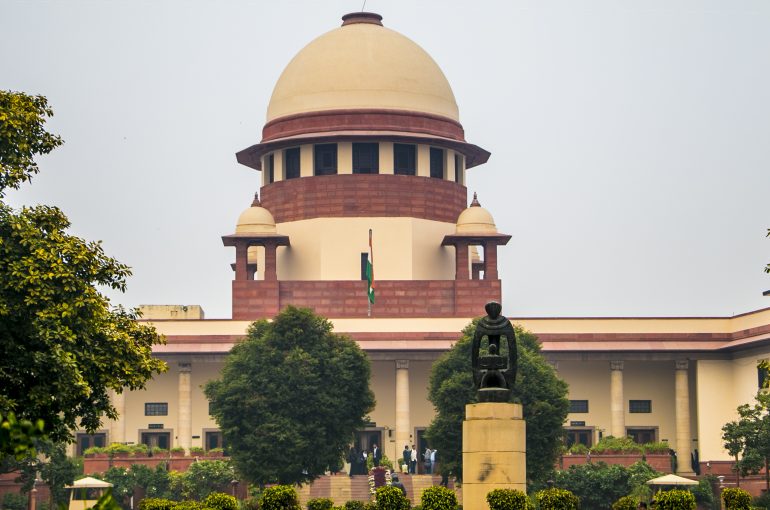BETRAYAL WITHIN THE WALLS: SUPREME COURT’S UNCOMPROMISING STAND ON INCESTUOUS SEXUAL VIOLENCE

INTRODUCTION
In the case of Bhanei Prasad @ Raju v. State of Himachal Pradesh, [Special Leave Petition (Criminal)] Diary No. 33114 of 2025, decided on 4 August, the Hon’ble Supreme Court of India, upheld the life sentence imposed on the Petitioner for repeated aggravated penetrative sexual assault on his minor daughter. The Division Bench of Justice Aravind Kumar and Justice Sandeep Mehta issued a forceful Judgment, characterizing the crime as a grave breach of trust and underscoring the constitutional obligation to uphold the dignity of children. While upholding the conviction, the Court also ordered significant victim compensation in line with the Nipun Saxena guidelines, stressing that justice in such matters must encompass both stringent punishment and meaningful rehabilitation.
BRIEF FACTS
The case concerns a grave offence under the Protection of Children from Sexual Offences Act, 2012 (POCSO Act), involving the Petitioner, Bhanei Prasad @ Raju, convicted for repeatedly committing aggravated penetrative sexual assault on his ten-year-old daughter. The assaults occurred within the supposed safety of the home, over a sustained period. The victim’s elder sister also testified, corroborating the abuse. Medical and forensic evidence, including a DNA report, further supported the prosecution’s case.
The Trial Court imposed a sentence of life imprisonment on the Petitioner for the offence under Section 6 of the POCSO Act and additionally found him guilty under Section 506 of the Indian Penal Code for criminal intimidation. The Himachal Pradesh High Court, on appeal, upheld both the conviction and the sentence in their entirety.
ISSUES BEFORE THE COURT
- Whether the concurrent findings of the Trial Court and High Court, convicting the Petitioner, suffered from any legal or evidentiary infirmity warranting interference under Article 136 of the Constitution.
- Whether the Petitioner’s claim of false implication due to strained family relations and disapproval of his daughters’ romantic choices could be sustained?
- Whether interim bail could be granted after the conviction had been upheld by the Appellate Court.
ANALYSIS
The Supreme Court underscored the unique gravity of offences involving incestuous sexual violence, particularly when the perpetrator is the child’s father—the natural guardian entrusted with her protection. The Court noted that the victim’s testimony was consistent, credible, and corroborated by medical and forensic evidence. Under Section 29 of the POCSO Act, once the foundational facts are established, a presumption of guilt arises, which the Petitioner failed to rebut.
The Defense’s plea of false implication was dismissed as implausible, with the Court observing that no daughter would fabricate such serious allegations merely due to household disputes. The argument of granting bail was also rejected outright, given the concurrent findings of guilt, the heinous nature of the offence, and the absence of any perversity in the judgments below.
Importantly, the Court reaffirmed that justice in sexual offence cases must go beyond conviction, extending to victim rehabilitation. Referring to Nipun Saxena v. Union of India (2019) 2 SCC 703, the Court invoked the Compensation Scheme for Women Victims/Survivors of Sexual Assault, directing the State of Himachal Pradesh to pay ₹10.5 lakh to the victim. Out of this, ₹7 lakh was to be kept in a fixed deposit for five years, with interest payable quarterly, and ₹3.5 lakh to be transferred directly to her account. This, the Court held, was necessary to secure her future and dignity.
CONCLUSION
The Supreme Court summarily rejected the Special Leave Petition, thereby affirming the life sentence awarded to the Petitioner. It reiterated that offences of this nature demand the severest judicial condemnation and deterrent punishment, with no scope for misplaced sympathy. The ruling not only fortified the evidentiary standards under the POCSO Act but also emphasized the judiciary’s role in ensuring holistic justice—one that punishes the offender while restoring dignity and security to the survivor.
The Judgment stands as a strong reaffirmation of the principle that crimes involving sexual violence against children, particularly those committed by a parent, are to be met with an uncompromising judicial stance. By coupling stringent punishment with meaningful victim compensation, the Court has sent a clear message that justice in such cases must be multidimensional—protecting the vulnerable, recognising their trauma, and ensuring that the legal system serves both as a shield and as a beacon of hope for survivors of such heinous crimes.
SARTHAK KALRA
Senior Legal Associate
The Indian Lawyer & Allied Services
EDITOR’S COMMENTS
Incestuous relationships of the house is a common thing and the reason it grows and continues is because the helpless victim, very often a minor, does not voice the abuse. In many cases, even when the minor voices his/her resentment, the elders in the family try to muffle the whole thing because of the public shame on the family. Such offenses should not be encouraged or stifled as it is an extremely serious offense and absolutely unforgivable. It is a good thing that now the POCSO Act makes these offenses punishable with imprisonment, including life imprisonment. Our Team has done a video on our YouTube Channel, The Indian Lawyer & Legal Tips, discussing the important aspects of POCSO Act and case laws (https://www.youtube.com/watch?v=T3_l0H0LGY4&list=PLwvt70tmkFwr_iqKEWdtNeh9TTHfSnioh&index=1) that show how stringent the POCSO Act is. All readers are urged to report such incidents even if they are not connected to the family that goes through the trauma in the interest of making society a better place.
SUSHILA RAM VARMA
Advocate & Chief Legal Consultant
The Indian Lawyer & Allied Services
Please log onto our YouTube channel, The Indian Lawyer Legal Tips, to learn about
various aspects of the law. Our latest Video, titled- “What Is Impeachment? Legal
Process to Remove Judges and Officials in India| Advocate Sushila Ram Varma”
can be viewed at the link below:





































Leave a Reply